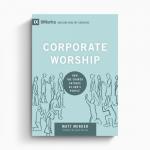This post is part of a series walking through the second volume of Abraham Kuyper’s Common Grace
The point we’ve been leading up to is that misery and sin must be resisted. It is especially noble to fight it lovingly “in others.” Such is the goal of “pity, compassion, and mercy.” (574-575) This is ultimately what God does for us–He battles “sin’s misery… in a twofold manner.” (575)
First, common grace “arrests the working of sin” so that it breaks out less “in our heart.” Second, common grace “arrests the working of sin’s effects” so we are not overwhelmed. He does these “either directly himself or by means of man.” (575) In either case, God gets the glory.
And then Kuyper gives an awkward example of climate–which is obviously under God’s direct control in the grand sense (whatever the value of climate change arguments, that’s obviously a modern issue rather than a historic one, and one of very small scale in the grand scheme of things relative to God’s absolute sovereignty). While it’s a bit obscure, the point is that even the weather affects whether or not we are flourishing. We as human beings don’t add to the rain or sunshine.
The broader point is that God resists sin and demands that we do so as well using the tools that He has given us. We see this point illustrated clearly in the flood.
Noah was not exempted from judgment because He feared God–many young children died in the flood who had not yet been hardened against God. Besides, Noah’s wife and the families of his children were saved, and their faith as at best unclear in Scripture. Most importantly, in this life “common misery” does not spare the Godly and strike the godless–and if you need proof of that just look at what happened to Jesus! Scripture and experience alike are clear on this point. Instead, Noah and his family were saved for
“the procreation of the human race, the preservation of God’s church, and the upholding of the glory of God in the continuation of his plan for the world.” (576-577)
In all of this, did Noah submit passively to God’s judgment? No. He resisted the misery of sin by the means which God had provided. This means of course was the ark, which wasn’t exactly a “ship” as it was designed for saving Noah and the critters alone. I think Kuyper’s point here is that the ark is best read not as what we think of as a boat but rather as God’s provision of everything that Noah needed (though of course it was a sort of boat too–Kuyper just doesn’t want to get hung up on the shipbuilding side of things–though he goes on to point out that Noah almost certainly used local labor to help him build the boat, which means those who perish may very well have had a hand in the work that saved those who survived).
Noah’s driving force was faith; faith focused on both the coming destruction (the flood) and the promise of salvation (the ark). Both of these in turn were based on God’s Word alone. Others could see the visible sign of Noah’s faith as it was being built, but in seeing they did not believe.
In all this God both brings punishment (the flood) and lessens the severity of the punishment (the ark that saved some of humanity). God in this way limits the severity of sin.
Dr. Coyle Neal is co-host of the City of Man Podcast an Amazon Associate (which is sometimes linked in this blog), and an Associate Professor of Political Science at Southwest Baptist University in Bolivar, MO













